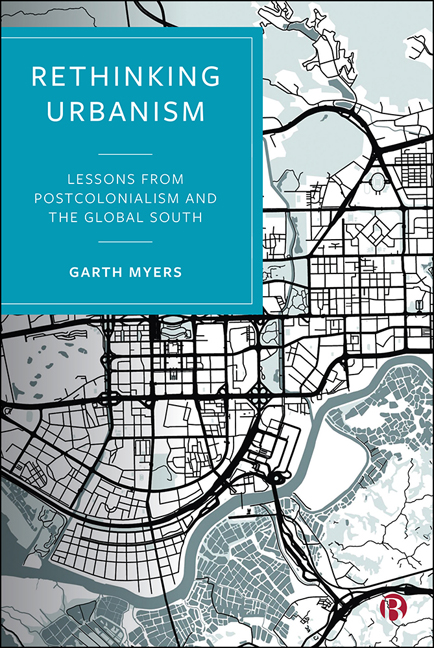Book contents
- Frontmatter
- Dedication
- Contents
- List of Figures
- List of Acronyms
- Glossary of Foreign Terms
- Acknowledgments
- Preface
- Introduction: Rethinking Urbanism from the South
- 1 Southern Processes of Planetary Urbanization in Hartford
- 2 Villages in the City: Patterns of Urbanization in the Pearl River Delta, Dakar, and Zanzibar
- 3 The Useful and Ornamental Landscapes of British (Post)colonialism
- 4 Submarine Urbanism: Cities People Make in ‘the Here and the Elsewhere’
- 5 ‘The Whole World Is Made in China’: Products and Infrastructures of Dis/connection
- 6 Urban Politics and Policy in a Southern Urban Planet
- Epilogue
- References
- Index
4 - Submarine Urbanism: Cities People Make in ‘the Here and the Elsewhere’
Published online by Cambridge University Press: 03 March 2021
- Frontmatter
- Dedication
- Contents
- List of Figures
- List of Acronyms
- Glossary of Foreign Terms
- Acknowledgments
- Preface
- Introduction: Rethinking Urbanism from the South
- 1 Southern Processes of Planetary Urbanization in Hartford
- 2 Villages in the City: Patterns of Urbanization in the Pearl River Delta, Dakar, and Zanzibar
- 3 The Useful and Ornamental Landscapes of British (Post)colonialism
- 4 Submarine Urbanism: Cities People Make in ‘the Here and the Elsewhere’
- 5 ‘The Whole World Is Made in China’: Products and Infrastructures of Dis/connection
- 6 Urban Politics and Policy in a Southern Urban Planet
- Epilogue
- References
- Index
Summary
Introduction
Urban studies has developed a vast interest in transnational urbanism in part for analyzing the confusing, contested, and sometimes hardto-see flows of human beings in the contemporary era. As with many developments within global urban studies, both the theoretical and empirical dimensions of this work are dominated by global North scholarly interests and trends. Literature on global, globalizing, or world cities has long focused on the transformative impacts of migration. On one hand, researchers highlight the importance of transnational elites, and, on the other, floating populations of marginalized global South residents in globalizing cities (Benton-Short, Price and Friedman 2005). An increasing area of interest resides with those in between.
Most literature on transnational migration and urbanism has centered on global South migrants’ impacts in global North cities. This has produced valuable outcomes, like Smith's (2005: 237) argument that new transnational migrants ‘forge… translocal connections and create the translocalities that increasingly sustain new modes of being-in-theworld’. Translocal is a useful term for both horizontal and vertical ‘relations across different locations’ in the contemporary era of globalization and planetary urbanization, because it ‘incorporates the tension and interplay between mobility and situatedness, movement and stability’ (Verne 2012: 17– 18). This chapter focuses on migrants’ translocalities, but by looking at what happens in global South urban contexts from which translocal migrants originate and to which they often return or circulate. It builds from scholarly analysis, but also from cultural works, since literature (the heart of postcolonial studies) and other arts provide vivid illustrations of Southern perspectives on these translocalities, on the ‘underside of our history’ essential to the continued ‘durability of our world’ (Mbembe 2017: 181).
What emerges across these diverse settings is something Glissant termed ‘the force of a people’, where each place becomes a ‘meeting space where all worlds intermingle, an anchorage point connected to all the elsewheres’ (Rosemberg 2016: 324). Glissant called this intermingling of places ‘creolization’: this is ‘a relation of resistance and of affirmation of difference, born in the Caribbean’, where ‘creolization is marked by the inherent violence of the slave trade’ (Rosemberg 2016: 325). Slavery and indentured servitude mark much of the narrative of creolization in this chapter, alongside colonialism. However, my emphasis lies in how these cities’ writers and artists seek to move beyond or come to grips with the colonial (and post-colonial) wounds.
- Type
- Chapter
- Information
- Rethinking UrbanismLessons from Postcolonialism and the Global South, pp. 105 - 130Publisher: Bristol University PressPrint publication year: 2020



